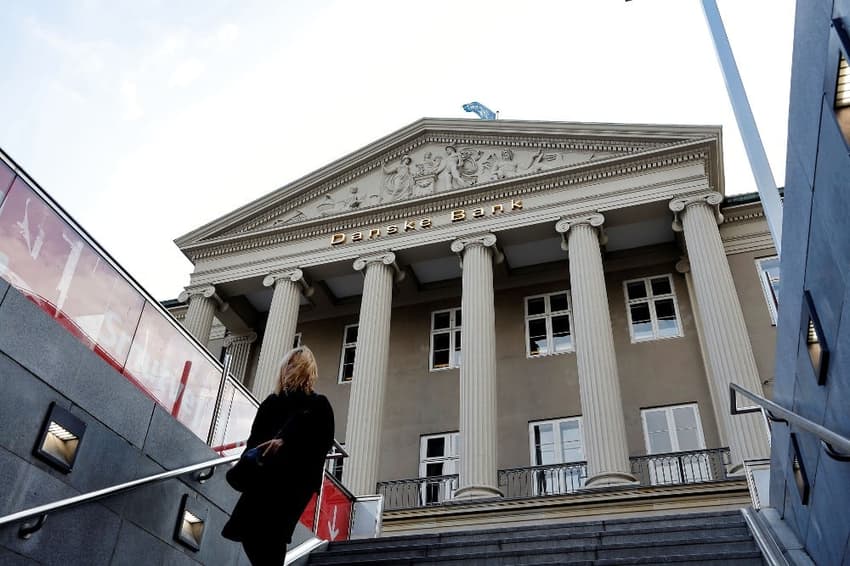Danske Bank admits fraud and must pay $2 billion fine in US case

Danske Bank, Denmark's largest, has pleaded guilty to defrauding American banks in order to move money from criminals in Russia and elsewhere into the US financial system and will forfeit $2 billion, the Justice Department said.
The Danish bank misled US banks about its Estonia branch's anti-money laundering controls so as to facilitate access to the US financial system for high-risk customers outside Estonia, including in Russia, the department said in a statement.
"Today's guilty plea by Danske Bank and two-billion-dollar penalty demonstrate that the Department of Justice will fiercely guard the integrity of the US financial system from tainted foreign money -- Russian or otherwise," said Deputy Attorney General Lisa Monaco.
The bank was accused of laundering some 200 billion euros ($212 billion at today's exchange rate) from 2007 to 2015. The scandal erupted in 2018.
Danske Bank Estonia had a profitable business line with non-resident customers called the NRP, which it lured by saying they could transfer large amounts of money through that bank with little to no oversight, the Justice Department said.
Danske Bank employees conspired with NRP customers to hide the true nature of their transactions, including by using shell companies to conceal the true owners, it added.
"Access to the US financial system via the US banks was critical to Danske Bank and its NRP customers, who relied on access to US banks to process US dollar transactions," the statement said.
It said Danske Bank Estonia processed $160 billion through US banks on behalf of the NRP clients.
"Today, Danske Bank accepted responsibility for defrauding US financial institutions and funneling billions of dollars in suspicious and criminal transactions through the United States," said Assistant Attorney General Kenneth Polite, of the Justice Department's Criminal Division.
Separately, the bank has agreed to pay the US Securities and Exchange Commission $413 million to settle charges that it misled investors about its compliance with anti-money laundering requirements, the SEC said.
Comments
See Also
The Danish bank misled US banks about its Estonia branch's anti-money laundering controls so as to facilitate access to the US financial system for high-risk customers outside Estonia, including in Russia, the department said in a statement.
"Today's guilty plea by Danske Bank and two-billion-dollar penalty demonstrate that the Department of Justice will fiercely guard the integrity of the US financial system from tainted foreign money -- Russian or otherwise," said Deputy Attorney General Lisa Monaco.
The bank was accused of laundering some 200 billion euros ($212 billion at today's exchange rate) from 2007 to 2015. The scandal erupted in 2018.
Danske Bank Estonia had a profitable business line with non-resident customers called the NRP, which it lured by saying they could transfer large amounts of money through that bank with little to no oversight, the Justice Department said.
Danske Bank employees conspired with NRP customers to hide the true nature of their transactions, including by using shell companies to conceal the true owners, it added.
"Access to the US financial system via the US banks was critical to Danske Bank and its NRP customers, who relied on access to US banks to process US dollar transactions," the statement said.
It said Danske Bank Estonia processed $160 billion through US banks on behalf of the NRP clients.
"Today, Danske Bank accepted responsibility for defrauding US financial institutions and funneling billions of dollars in suspicious and criminal transactions through the United States," said Assistant Attorney General Kenneth Polite, of the Justice Department's Criminal Division.
Separately, the bank has agreed to pay the US Securities and Exchange Commission $413 million to settle charges that it misled investors about its compliance with anti-money laundering requirements, the SEC said.
Join the conversation in our comments section below. Share your own views and experience and if you have a question or suggestion for our journalists then email us at [email protected].
Please keep comments civil, constructive and on topic – and make sure to read our terms of use before getting involved.
Please log in here to leave a comment.